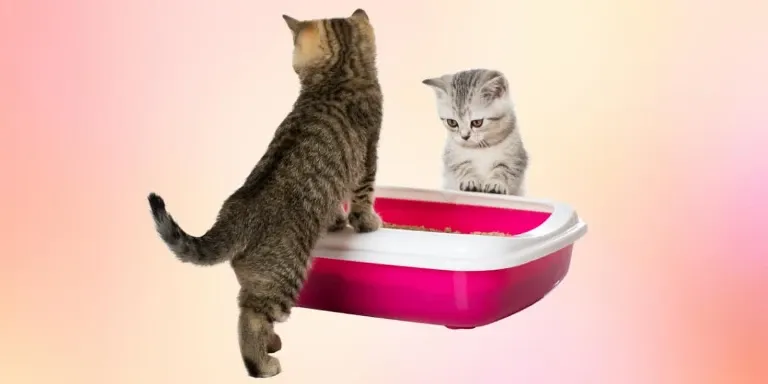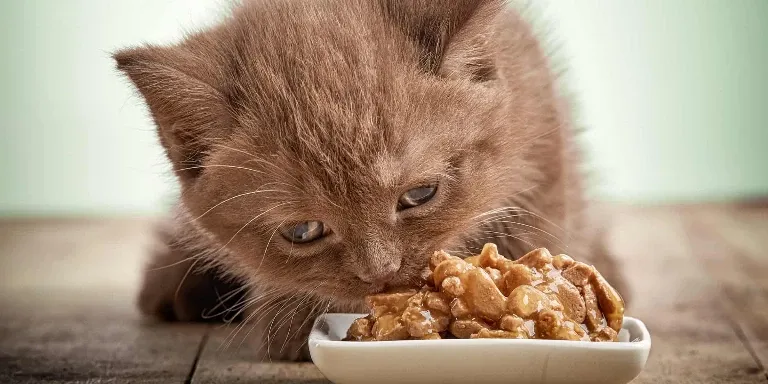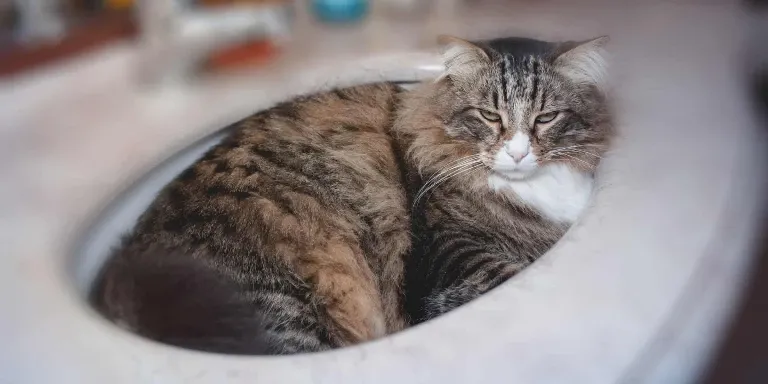The Best Fluffy Pancakes recipe you will fall in love with. Full of tips and tricks to help you make the best pancakes.

Are you struggling to keep up with your hyperactive kitten’s constant running and jumping? Are you worried about their aggressive behavior towards other pets or even humans?
If so, you may have heard that neutering can help calm down your kitten and make them more manageable. But is it true? Will your kitten really calm down after neutering?
Kittens generally calm down after neutering. Neutering helps to reduce hormone-driven behaviors, such as aggression and territorial marking, which can cause kittens to be hyperactive and restless. However, it may take a few weeks for the hormones to fully decrease and for the kitten to show signs of calming down.
In this article, we will explore the science behind neutering and how it can affect your kitten’s behavior. We will also discuss the potential risks and side effects of neutering, as well as post-neutering care for your furry friend.
By the end of this article, you will have a better understanding of whether neutering is the right choice for your kitten, and how it can help improve their behavior. So, let’s dive in!
Understanding the Purpose of Neutering
Neutering is like turning down the volume on a kitten’s hormonal impulses, helping them to become calmer and more content. This procedure involves the removal of a male cat’s testicles or a female cat’s ovaries, which can have numerous benefits.
For instance, neutering can reduce the risk of certain illnesses, such as uterine infections and testicular cancer, as well as prevent unwanted litters, which can contribute to pet overpopulation.
Despite the many benefits of neutering, there are still some myths surrounding this procedure. One common myth is that neutering will make a kitten fat and lazy. However, this is simply not true.
While neutering can reduce a cat’s energy levels, this is generally due to a decrease in territorial and mating behaviors, rather than a direct effect of the surgery. In fact, neutered cats often require fewer calories than intact cats, which means they may need adjustments to their diet and exercise to maintain a healthy weight.
Understanding the benefits of neutering and the myths surrounding this procedure can help you make an informed decision for your kitten. With that said, the science behind neutering is complex and involves many factors, such as the kitten’s age and health.
In the next section, we’ll delve deeper into the science behind neutering and how it can help your kitten become calmer and more content.
The Science behind Neutering
The process of spaying or neutering your furry friend is like waving a magic wand that transforms their behavior completely. The reason behind this transformation is the hormonal changes that occur after the surgery.
In male cats, neutering removes the testicles that produce testosterone which is responsible for aggressive behavior and mating instincts. In female cats, spaying removes the ovaries that produce estrogen and progesterone which are responsible for the heat cycle and territorial behavior.
The hormonal changes after neutering can lead to behavioral modifications in kittens. For instance, neutered male cats are less aggressive and territorial, and are less likely to spray urine to mark their territory. Similarly, spayed female cats are less likely to yowl and show signs of restlessness during the heat cycle.
In addition, neutering can also reduce the risk of certain health problems such as mammary tumors in female cats and prostate problems in male cats.
Factors that influence a kitten’s behavior can play a role in how they react after being neutered. For example, kittens that were neutered at a younger age tend to recover faster and have fewer complications than older cats. Additionally, the kitten’s environment and socialization also play a role in their behavior after surgery.
Providing a calm and comfortable environment after the surgery can help reduce stress and promote healing.
Factors that Influence a Kitten’s Behavior
You might be surprised by how much your furry friend’s behavior can be influenced by their environment and socialization. Kittens are particularly sensitive to their surroundings, and their behavior can be shaped by various factors. Here are some things to consider when it comes to your kitten’s behavior:
- Socialization: The first few weeks of a kitten’s life are critical for socialization. Kittens that are handled frequently and exposed to different people, animals, and environments are more likely to grow up to be well-adjusted and friendly cats.
- Environment: Your kitten’s living space can also influence their behavior. A cluttered or chaotic home can be stressful for a kitten, while a calm and organized environment can help them feel secure and relaxed.
- Nutrition: The food your kitten eats can also impact their behavior. A diet that is high in protein and low in carbohydrates can help prevent hyperactivity and promote healthy brain function.
- Playtime: Kittens need plenty of playtime to burn off excess energy and prevent boredom. Without enough playtime, they may become hyperactive or destructive.
- Health: Finally, it’s important to make sure your kitten is in good health. Illnesses or injuries can cause pain and discomfort, which can lead to changes in behavior.
Understanding these factors can help you create a positive environment for your kitten and promote healthy behavior. However, if you notice signs of aggressive or hyperactive behavior in your kitten, it may be time to seek professional help.
Signs of Aggressive or Hyperactive Behavior in Kittens
If your furry friend is showing signs of aggressive or hyperactive behavior, it’s important to address it early on to ensure they receive the proper care and attention they need.
Some common signs of aggressive behavior in kittens include biting, scratching, and hissing. Hyperactive kittens may also display behaviors such as excessive jumping, running, and playing.
One way to address aggressive or hyperactive behavior in kittens is through play therapy. This involves providing your kitten with toys and engaging in interactive play sessions. Play therapy can help redirect your kitten’s energy in a positive way and provide an outlet for their natural instincts.
Positive reinforcement is another effective way to address aggressive or hyperactive behavior in kittens. This involves rewarding your kitten for good behavior, such as using a scratching post instead of furniture or playing gently instead of biting. By rewarding your kitten for good behavior, they’ll be more likely to continue exhibiting that behavior in the future.
By addressing aggressive or hyperactive behavior early on through play therapy and positive reinforcement, you can help your kitten develop healthy behaviors that will last a lifetime.
Neutering can also play a role in calming down kittens, as it can decrease their levels of testosterone and reduce aggressive behavior.
How Neutering Can Help Calm Down Kittens
Discover the potential benefits of neutering your kitten and how it can positively impact their behavior. Behavior modification is one of the key advantages of neutering your kitten. It can help reduce the chances of aggressive or hyperactive behavior in kittens. Neutering can also help make your kitten more affectionate and less likely to roam outside, which can lead to fights with other animals and exposure to diseases.
In addition to behavior modification, environmental enrichment is also important for calming down kittens. This involves providing stimulating and safe environments for your kitten to play, exercise, and explore. Environmental enrichment can include toys, scratching posts, and interactive games that encourage your kitten to use their natural instincts and energy in a positive way.
Neutering your kitten can also help with environmental enrichment by reducing the urge to mark their territory or engage in excessive scratching. Neutering your kitten can have a significant positive impact on their behavior and overall well-being. By reducing the chances of aggressive or hyperactive behavior in kittens, and providing environmental enrichment, you can help your kitten become a happier and more well-behaved pet.
However, it’s important to be aware of the potential risks and side effects of neutering, which we’ll discuss in the subsequent section.
Potential Risks and Side Effects of Neutering
Neutering can come with potential risks and side effects that pet owners should be aware of, but it’s generally a safe procedure. Complications can occur, such as bleeding, infection, or an adverse reaction to anesthesia. These risks can be minimized by choosing a reputable veterinarian and following their pre-operative instructions.
In addition to short-term risks, neutered cats may be at a higher risk for certain health issues, such as obesity and urinary tract problems. They may also have a decreased ability to fight off certain infections. However, it’s important to note that the benefits of neutering typically outweigh these potential risks. Neutering reduces the risk of certain cancers and prevents unwanted litters.
After your kitten is neutered, it’s important to provide proper post-operative care. This includes keeping them calm and confined to a small area for the first few days, monitoring the surgical site for any signs of infection, and preventing them from licking or scratching the incision. With proper care, your kitten should recover quickly and be back to their playful self in no time.
Post-Neutering Care for Kittens
Congratulations, your little ball of energy has transformed into a nap-loving, laid-back feline after their surgery. Neutering is a common procedure that can greatly benefit your kitten’s health, behavior, and overall well-being. However, it’s important to provide proper post-operative care to ensure a smooth recovery.
Here are some tips for taking care of your kitten after their neutering procedure:
- Firstly, monitor your kitten’s behavior and activity level. It’s normal for them to be a bit groggy and disoriented after surgery, but they should gradually return to their normal self within a few days.
- Make sure they have a quiet, comfortable space to rest and recover, and limit their physical activity for the first week or two.
- You may also need to adjust their diet and feeding schedule based on your veterinarian’s recommendations.
Secondly, follow your veterinarian’s post-operative instructions carefully. This may include administering medication, cleaning the incision site, and preventing your kitten from licking or chewing on the area. It’s important to keep the incision site clean and dry to prevent infection. If you notice any signs of discomfort, swelling, or discharge, contact your veterinarian immediately.
Proper kitten recovery after neutering involves closely monitoring your kitten’s behavior and following your veterinarian’s post-operative instructions. While it may take some time for your kitten to fully recover, they should eventually return to their happy, playful self. However, if you notice any concerning symptoms or have any questions or concerns, don’t hesitate to seek professional help from your veterinarian.
When to Seek Professional Help
If you notice any concerning symptoms or have questions about your kitten’s behavior after neutering, don’t hesitate to seek professional help from your veterinarian. Some behavioral changes are common after neutering, but it’s important to distinguish between normal adjustments and signs of a more serious problem.
Here are three signs that indicate it’s time to seek professional advice:
- Aggression: While some kittens may become calmer after being neutered, others may become more aggressive. If your kitten shows signs of aggression towards people or other animals, it’s important to address the issue as soon as possible. Your veterinarian can help determine the underlying cause of the aggression and provide guidance on how to manage the behavior.
- Excessive licking or biting: It’s normal for kittens to groom themselves, but excessive licking or biting can be a sign of discomfort or anxiety. If you notice that your kitten is obsessively grooming a particular area or biting at their fur, it’s worth consulting with your veterinarian to rule out any medical conditions or behavioral issues that may be causing the behavior.
- Refusal to eat or drink: After neutering, it’s common for kittens to experience a loss of appetite and decreased water intake. However, if your kitten refuses to eat or drink for an extended period of time, it’s important to seek professional advice. Dehydration and malnutrition can quickly become serious health issues, so it’s best to address the issue early on.
Remember, behavioral changes are common after neutering, but it’s important to keep an eye out for any signs of a more serious problem. If you have any concerns or questions, don’t hesitate to reach out to your veterinarian for professional help.
Will Neutering Affect My Kitten’s Behavior?
Neutering can positively impact your cuddly kitten’s development stages. It can help reduce aggressive behavior, spraying, and roaming. Neutered kittens tend to be more friendly, less territorial, and less likely to engage in mating behaviors. It’s best to consult with your veterinarian to understand the effects on your kitten.
Conclusion
Congratulations! You’ve successfully taken the first step towards responsible pet ownership by considering neutering your kitten.
As you’ve learned, neutering can help calm down your kitten, reduce aggressive and hyperactive behavior, and prevent unwanted behaviors like spraying and wandering.
However, it’s important to keep in mind that neutering is not a magic solution and may not completely eliminate all behavioral issues. Additionally, there are potential risks and side effects associated with the procedure, so it’s important to discuss any concerns with your veterinarian and follow proper post-neutering care.
Remember, every kitten is unique and will respond differently to neutering. With proper care and attention, your kitten can lead a happy and healthy life.
As the saying goes, “An ounce of prevention is worth a pound of cure.”








